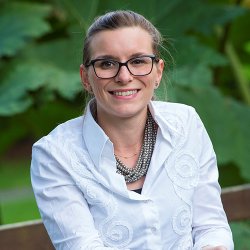Unravelling the role of adventitial pericytes in thoracic aortic aneurysms
This PhD studentship aims to characterise the transcriptome/proteome profile of adventitial pericytes isolated from patients affected by thoracic aortic aneurysms.
Start date
1 January 2025Duration
3 yearsApplication deadline
Funding source
University of Surrey – National University of Singapore PhD Collaborative ProgrammeFunding information
UKRI standard stipend (£19,237 for 2024-25) p/a.
About
This is a new, exciting fully funded PhD studentship opportunity combining clinical biochemistry, cell biology, proteomics and transcriptomics. It applies existing knowledge of the relevance of microvascular cells to create a new concept by which microvascular dysfunction is at the heart of a large vessel disease, thoracic aortic aneurysms (TAA). TAA is a complex disease with high morbidity and mortality that pose significant challenges to early diagnosis. Structurally, the aorta is composed of three main layers: the tunica intima, media, and adventitia. The outer layer of the blood vessel wall, the adventitia, contains the small blood vessels feeding the cells within the vessel wall (vasa vasorum), alongside a variety of immune cells and progenitors, all embedded in a fibrous extracellular matrix (ECM). Pericytes, the cells surrounding the lumen of small blood vessels in the adventitia exert their physiological function by controlling microvascular function, but are also capable of reparative activation to restore tissue integrity after damage. However, so far their role in TAA has been largely unexplored. This PhD project will establish for the first time the role of adventitial pericytes in the development of TAA. The major aims are 1) establish a protocol for the isolation of adventitial pericytes from human aorta; 2) quantify microvascular density, adventitial pericyte coverage and apoptosis; 3) uncover TAA-specific pericyte secretome and characterise adventitial ECM by proteomics; 4) characterise the transcriptome profile of adventitial pericytes.
The project is supported by University of Surrey – National University of Singapore PhD Collaborative Programme. The successful candidate will spend 1.5-2 years in Dr Salvatore Santamaria and Dr Paola Campagnolo labs at the University of Surrey (UK) and 1-1.5 years in the Lab of Prof. Vitaly Sorokin, at the National University of Singapore.
The successful candidate will be involved in an interdisciplinary, international research project and acquire a broad range of expertise under the supervision of a dynamic team of supervisors.
Eligibility criteria
You will need to meet the minimum entry requirements for our Biosciences and Medicine PhD programme.
Open to candidates who pay UK/home rate fees. See UKCISA for further information.
Applicants are expected to hold a good honours degree (upper second) in an appropriate discipline, but prior experience in research or industry may be acceptable. Enthusiasm for, and commitment to, independent study is essential. The ideal candidate will have experience in wet-lab, interest in learning -omics approaches and analysis and good communication skills in English and most importantly, a determined mindset to pursue the research project. We are particularly interested in candidates with previous experience in cardiovascular biology, proteomics or transcriptomics.
How to apply
Applications should be submitted via the Biosciences and Medicine PhD programme page. In place of a research proposal you should upload a document stating the title of the project that you wish to apply for and the name of the relevant supervisor.
Studentship FAQs
Read our studentship FAQs to find out more about applying and funding.
Application deadline
Contact details
Salvatore Santamaria

Studentships at Surrey
We have a wide range of studentship opportunities available.

